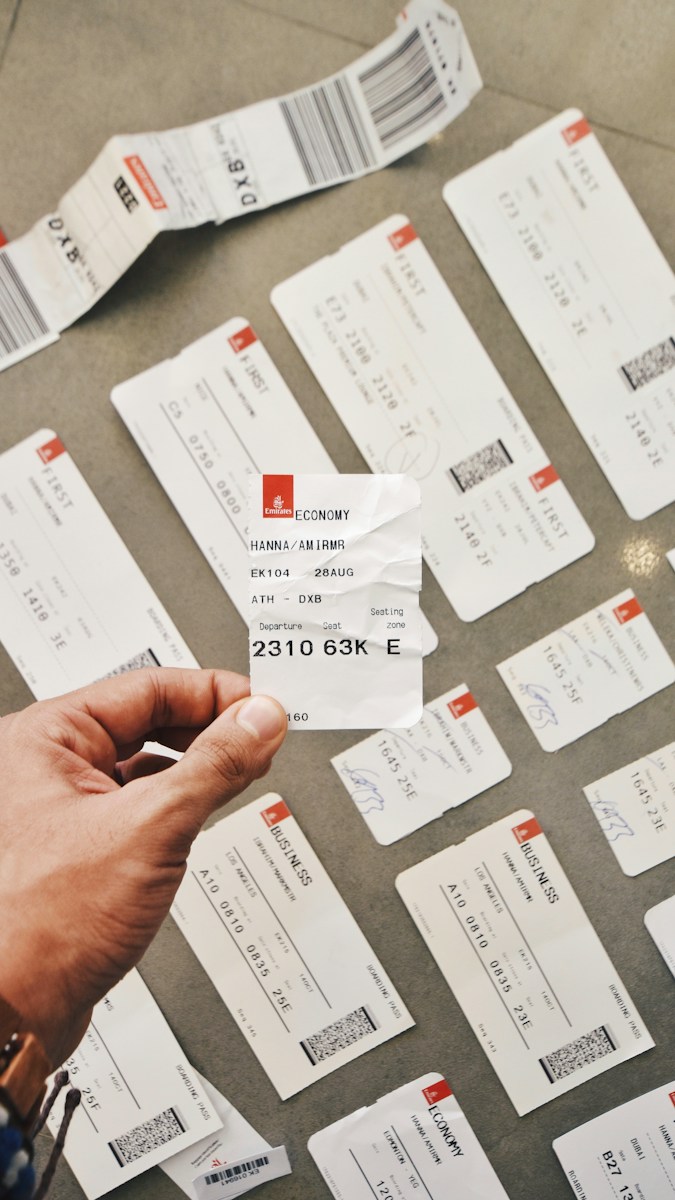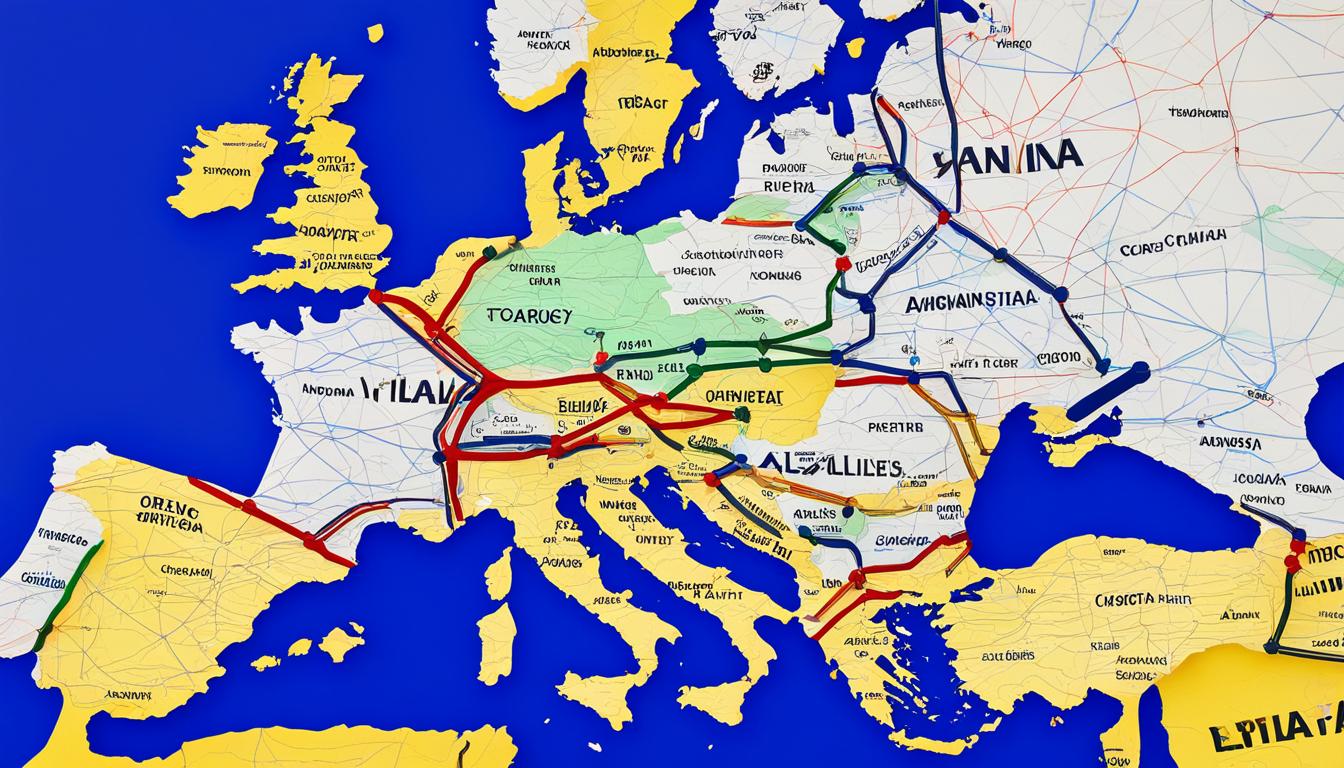You’ve got the wanderlust bug and you’re ready to embark on your next adventure. But there’s one thing standing between you and your dream destination: the cost of airfare. It’s no secret that flying can be expensive, especially when you’re traveling solo. But don’t let that deter you.
There are plenty of budget-friendly airfare hacks that you can use to save money on your next trip. Whether it’s knowing when to book, where to look, or how to leverage airline rewards programs, these tips will help you stretch your travel budget further. So pack your bags and get ready to take off without breaking the bank.
Best Time to Book Airfare Tickets

In the quest for budget-friendly airfare, timing is everything. You may have heard common whispers suggesting that certain days are better for booking flights. Truth be told, there’s some weight in this theory.
Research conducted by the Airline Reporting Corporation (ARC) found that for domestic flights within the US, Tuesday and Wednesday are often the cheapest. Conversely, Friday proved to be the most expensive day to book a flight. For international flights, however, weekends are generally the best times to book.
Let’s dissect some more data, shall we?
| Domestic | International | |
|---|---|---|
| Cheapest Day to Book | Tuesday/Wednesday | Weekends |
| Most Expensive Day to Book | Friday | Weekdays |
But it’s not just about the day of the week. Booking well in advance, at the right time, can save you a considerable amount. Generally, booking flights 3-4 months in advance for domestic flights and 5-6 months for international flights tends to render the best deals.
With the advent of airfare alert tools, you can now automate this process. These tools will send you a notification the moment prices for your specified route drop. How convenient is that?
Bear in mind that while these tips are derived from careful observation and analysis of historic data, prices can remain unpredictable due to numerous variables such as demand, oil prices, and geopolitical events. Always keep an eye out since airfares can fluctuate often. Regardless of the day and time, if you see a good deal that fits your budget, don’t hesitate to book it. It may not be there tomorrow.
In our next section, we’ll move from when to book to where to find the best airfare deals. Fancy knowing which online platforms and strategies can help you nab airfare tickets at the lowest prices? Then, stay tuned.
Comparison Shopping: Finding the Best Deals
Aside from the timing of booking your flight, another effective strategy to save on airfare is comparison shopping. It’s like when you’re hunting for that perfect pair of shoes: You don’t just settle for the first price you see; you explore different stores to make sure you’re getting the best deal.
Airlines and online travel agencies fluctuate their prices based on demand and availability. By comparing prices, you can ensure you’re getting the best price for your flight. Use this to your advantage: visit several different websites and booking engines to compare fares.
- Online travel agencies like Expedia or Kayak
- Direct airline websites
- Flight search engines like Skiplagged and Secretflying
Running a comprehensive search on these platforms can help you uncover surprisingly low fares.
While it’s tempting to just snap up the first decently-priced fare you see, you’ll want to hold off until you’ve perused a variety of websites. In the cutthroat world of airfare, prices can fluctuate dramatically in a matter of minutes.
Be prepared to react quickly when you encounter a good deal. It’s not uncommon for fares to change suddenly, and you don’t want to wind up paying more because you hesitated.
There are also numerous apps and websites that can help track price fluctuations. These tools can alert you when your desired route has dropped in price. You’ll be able to pounce on a deal as soon as it emerges.
Let’s turn our attention to the importance of adjusting your flight plans based on price.
Choosing the Right Airlines for Budget Travel
Getting the best deal on airfare isn’t just about when and how to book. It’s also about who you book with.
There are various airlines to choose from. Traditional airlines dominate the air transport industry, but budget airlines have made their mark, offering competitive pricing for travelers working within tight budget constraints. AirAsia, Ryanair, and Southwest are just a few examples.
Your job isn’t to choose the first airline that pops up on your search list. Instead, you should take an extra step—compare the airlines. Start with checking their websites. Be wary of additional fees that budget airlines might charge for luggage, seat selection, etc. Ensure that the “budget-friendly” deals you’re considering don’t end up draining your wallet in ‘extras’.
But the hunt doesn’t end there. You need to be aware of the services each airline offers. Does the flight include meals? Does it provide in-flight entertainment systems or Wi-Fi? Consider these elements before making your decision. Remember, a higher upfront cost may offer more value in the end.
Here’s a table with some data that might assist you in your search:
| Airlines | Average Fee for Extra Luggage | In-Flight Entertainment | Includes Meal |
|---|---|---|---|
| AirAsia | $30 | No | No |
| Ryanair | $50 | No | No |
| Southwest | No Charge | Yes | Snacks |
Lastly, don’t overlook the rewards and frequent flyer programs that airlines offer. Many have partnerships with hotels and rental car companies, which might give you some extra savings on your overall trip. Look for these benefits and choose the airline that suits your needs and fits your budget.
Of course, there’s still a wealth of information to be shared about smart travel choices. Our next topic will touch on how making slight adjustments to your flight itinerary can lead to significant savings.
Utilizing Airline Rewards Programs
A crucial step to cutting your airfare costs is understanding and leveraging airline rewards programs. These programs are a form of customer loyalty incentives where airlines reward you with points or miles every time you fly with them. The more frequently you fly, the more points you earn.
But how do airline rewards programs help you save money on airfare?
Let’s delve into that.
Once you accumulate a specific number of miles or points, you can redeem them for discounted or free flights. So, in reality, every flight gives you an opportunity to save on your future travels. If you are a regular traveler, these rewards can rake up pretty quickly and turn into substantial savings. Not to mention the additional perks like priority boarding, extra baggage allowance, or access to exclusive airline lounges.
Choosing an airline with a good rewards program offers two-pronged benefits. Not only do you get the comfort of knowing your chosen airline well, but you also increase your chances of accumulating sufficient rewards to redeem against future travel.
Yet, you must stay vigilant while enrolling in these programs. Make sure to peek into the fine print and understand the redemption process thoroughly. For instance, some airlines might have blackout dates or tricky expiration rules for their reward points.
Transforming your flight expenditure into savings needs constant attention and planning. Utilize price alert tools and apps to stay informed about rewards program updates, and make sure you’re signed up to receive marketing emails from your preferred airlines. They often contain exclusive member offers, bonus miles, or insider tips to maximize your points earned.
A proactive approach towards airline rewards programs can make your travel far more budget-friendly. Do your homework, stay informed, and watch the savings roll in. As you continue to find ways to travel economically, consider implementing slight adjustments to your flight itineraries too. Such tweaks can create a significant difference in your travel expenses.
Packing Smart: Saving Money on Baggage Fees
Choosing your luggage wisely can play an essential role in saving you money on airfare. Bags are commonly divided into two categories – checked and carry-on. Each airline has its specific restrictions regarding size, weight, and number of bags allowed per passenger. In some cases, you might be able to avoid checked baggage fees by strictly sticking to carry-on.
When shopping for luggage, it’s crucial to opt for lightweight bags. This will enable you to pack more without exceeding the weight limit set by airlines. The same principle applies to your personal items. It’s best to leave heavy items at home or check if there are alternatives you can buy upon reaching your destination.
Effective packing techniques can also maximize space, save on baggage fees, and streamline your travel experience. Consider using packing cubes or vacuum-sealed bags. They allow you to compress clothes and free up space for other travel essentials.
Yet, you can’t ignore the potential for unexpected charges from overweight luggage. Many airlines adhere to strict weight limits for both carry-on and checked bags, often as low as 40 pounds. You might find yourself paying costly overweight baggage fees if not cautious.
| Luggage Type | General Weight Limit (in pounds) |
|---|---|
| Carry-on Bags | 40 |
| Checked Luggage | 50 |
By planning and weighing your luggage in advance, you can circumvent such unplanned charges. Carry a portable luggage scale with you. It adds negligible weight to your luggage but can save you a stroke of last-minute panic at the check-in counter.
Finally, always review your airline’s baggage policies before each flight. While they are often consistent, airlines occasionally update their rules. Staying current with these changes can prevent you from being unpleasantly surprised at the airport. As a rule of thumb, when in doubt, aim to pack less.
That said, let’s move on to understanding how slight adjustments to your flight itineraries can help save costs.
Conclusion
You’ve now armed yourself with some budget-friendly hacks for airfare as a solo traveler. Remember, the key to saving money lies in your luggage. Opt for lightweight bags and make use of packing cubes or vacuum-sealed bags to maximize space. Always be mindful of weight limits and potential overweight baggage fees. Plan and weigh your luggage in advance to avoid any surprises. Stay informed about airline baggage policies. And don’t forget, small adjustments to your flight itinerary can lead to big savings. With these tips, you’re well on your way to making your solo travels more affordable and enjoyable. Safe travels!
Frequently Asked Questions
What is the main focus of the article?
The main focus of the article is offering tips on how to save money on airfare. It specifically provides guidance on choosing luggage wisely and packing strategically to avoid excess baggage fees.
In what way can choosing luggage wisely save on baggage fees?
Choosing lightweight luggage and maximizing space with packing techniques such as packing cubes or vacuum-sealed bags can help avoid exceeding weight limits, hence reducing extra baggage fees.
Why is it important to be aware of weight limits and potential overweight baggage fees?
Being aware of weight limits and possible overweight baggage fees allows travelers to plan and weigh luggage ahead, preventing unexpected charges at the airport.
What strategies are recommended for making the most of luggage space?
The article suggests using packing cubes or vacuum-sealed bags which allow for efficient use of space, leading to more items being stored within the weight limit.
What’s the next topic to be discussed in the article?
The next topic will discuss strategies for making slight adjustments to flight itineraries to further save on airfare costs.


